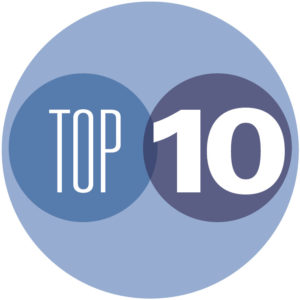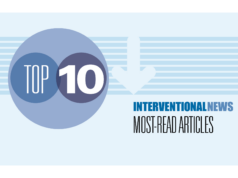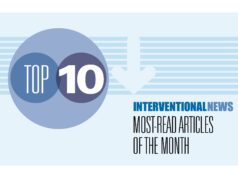 In October, the most popular stories from Interventional News included a subanalysis of the ABRE trial results revealing obesity ‘paradox in post-venous stenting outcomes; renal denervation gains class IIb recommendation in European Society of Cardiology (ESC) guidelines; and a new randomised controlled trial framework is set to improve reporting after endovascular infrainguinal lower-limb interventions for peripheral arterial disease (PAD).
In October, the most popular stories from Interventional News included a subanalysis of the ABRE trial results revealing obesity ‘paradox in post-venous stenting outcomes; renal denervation gains class IIb recommendation in European Society of Cardiology (ESC) guidelines; and a new randomised controlled trial framework is set to improve reporting after endovascular infrainguinal lower-limb interventions for peripheral arterial disease (PAD).
1. Has interventional radiology reached its global tipping point?
In a new global statement, aimed to set forth the essential elements of interventional radiology (IR) and continuing challenges facing the specialty, the Cardiovascular and Interventional Radiology Society of Europe (CIRSE) and the Society of Interventional Radiology (SIR) query: Have we reached the tipping point?
2. Paclitaxel puzzles: Final word on the controversy
Following his statement titled ‘Paclitaxel meta-analyses in the lower limbs: Missing the trees for the forest’ published in the June issue of The Journal of Vascular and Interventional Radiology (JVIR), Konstantinos Katsanos (University Hospital Patras, Rio, Greece) imparts his final word on the paclitaxel controversy, surveying the key meta-analyses data that moved the needle.
3. ABRE subanalysis highlights obesity ‘paradox’ in post-venous stenting outcomes
Results from a subset analysis of the ABRE study have shown that patients in three out of the six World Health Organisation (WHO) body mass index (BMI) groups—‘pre-obesity’, ‘obesity class I’ and ‘obesity class II’—trended towards higher 36-month patency rates compared with the ‘normal weight’ group.
4. Medinol announces first-in-human implantation of drug-eluting peripheral stent in Australia
Medinol has announced the successful first-in-human implantation of the ChampioNIR drug-eluting peripheral stent by Gerard S Goh and Thodur Vasudevan of the Alfred Hospital in Melbourne, Australia.
5. Novel AI-assisted DVT diagnostic pathway aims to ‘democratize’ point-of-care ultrasound
A new deep vein thrombosis (DVT) diagnostic pathway incorporating non-expert artificial intelligence (AI)-guided compression ultrasound could reduce workload and costs for healthcare systems while providing a quicker diagnosis and improving patient care.
6. EMBLOK enrols 50th patient in TAVR embolic protection trial
EMBLOK has announced that it has enrolled the first 50 patients in a clinical trial to evaluate the performance and treatment effect of its Emblok embolic protection system (EPS).
7. Argon Medical announces expansion of liver management portfolio
Argon Medical has announced the launch of the Intara introducer sheath and the TLAB transvenous liver biopsy system. The Intara introducer sheath is intended to maintain access to a patient’s peripheral or central vasculature (excluding coronary and neuro vasculature) to facilitate the introduction of therapeutic or diagnostic devices.
8. Renal denervation gains class IIb recommendation in ESC guidelines
Latest guidelines from the European Society of Cardiology (ESC) on the management of blood pressure and hypertension include a recommendation for the use of renal denervation as a tool to reduce blood pressure.
9. Microbot Medical completes enrolment for ACCESS-PVI clinical trial
Microbot Medical has today announced that it has successfully completed enrolment and follow-up for all patients in its ACCESS-PVI human clinical trial. The company also announced that it is accelerating its go-to-market strategy.
10. Novel RCT framework set to improve design and reporting of endovascular infrainguinal lower-limb interventions for PAD
Pilot testing has shown that a new framework—dubbed Endo-STAR—can be used to describe and standardise endovascular interventions for peripheral arterial disease (PAD) within a randomised controlled trial (RCT) protocol and monitor adherence to the protocol over the course of a trial. Ewa M Zywicka (University of Bristol Medical School, Bristol, UK) shared this conclusion during the Prize Session at the recent European Society for Vascular Surgery (ESVS) annual meeting (24–27 September, Kraków, Poland).











